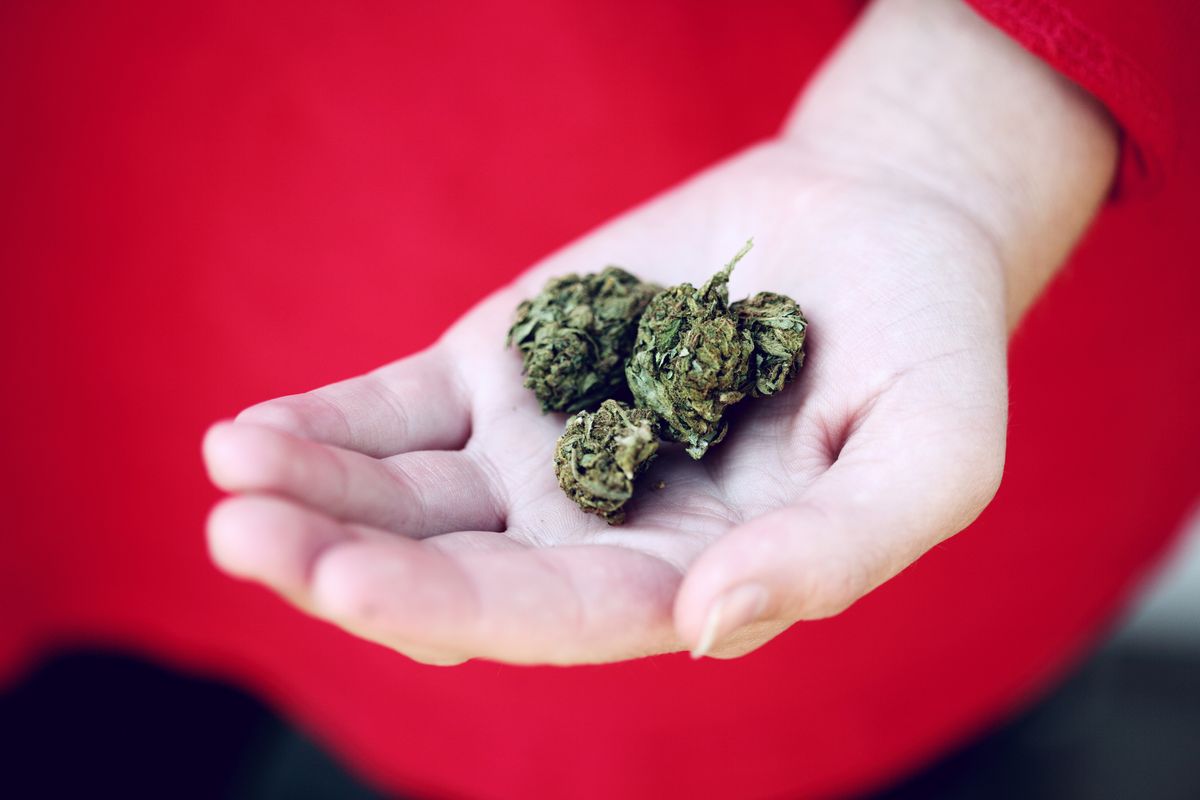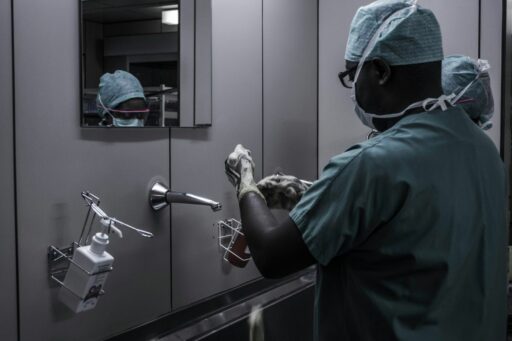Pennsylvania’s journey with medical marijuana is a tale of progressive reform and patient empowerment. Since the passage of the Medical Marijuana Act in 2016, the state has established a framework that not only provides relief to those with qualifying medical conditions but also contributes to economic growth and social justice. This article delves into the historical context, the regulatory framework, therapeutic advantages, and the broader impacts of medical cannabis in Pennsylvania, while also looking ahead to the potential future of cannabis legislation in the state.
Key Takeaways
- Pennsylvania’s Medical Marijuana Act of 2016 marked a significant shift from strict scrutiny to legal acceptance of cannabis for medical use.
- Qualified patients can access medical cannabis through a well-defined certification process and a network of dispensaries designed for compassionate care.
- Medical marijuana in Pennsylvania has shown therapeutic benefits for chronic pain, mental health conditions, and neurological disorders.
- The legalization of medical marijuana has led to job creation, economic growth, and has implications for social justice and public health.
- The future of cannabis legislation in Pennsylvania is dynamic, with ongoing debates around recreational legalization and the importance of community engagement.
The Historical Context of Medical Marijuana in Pennsylvania

The Passage of the Medical Marijuana Act
In April 2016, Pennsylvania marked a pivotal moment in its history with the enactment of the Medical Marijuana Act. This legislation represented a transformative shift, legalizing medical marijuana for patients with certain qualifying conditions. The process requires a recommendation from a certified physician, who evaluates patients for the Pennsylvania Medical Marijuana (PA MMJ) program.
The implementation of this act has been a cornerstone in the state’s approach to cannabis, setting the stage for a regulated medical marijuana industry. Dispensaries across Pennsylvania have become not just retail outlets but centers for compassionate care, offering a variety of strains and emphasizing patient education.
The Medical Marijuana Act has paved the way for a more compassionate approach to healthcare, allowing those in need to access alternative treatments.
While the act has been instrumental in changing the landscape of marijuana use in Pennsylvania, it is important for both residents and visitors to navigate the complexities of the current marijuana laws as of 2024.
The Shift from Strict Scrutiny to Legal Acceptance
The journey of medical marijuana in Pennsylvania has been marked by a significant shift from a period of strict legal scrutiny to one of legal acceptance. Initially, the state’s stance on cannabis was aligned with the federal classification of marijuana as a Schedule I controlled substance, indicating a high potential for abuse and no accepted medical use. This federal perspective created a complex legal environment, often at odds with evolving state policies.
However, the landscape began to change with the passage of the Medical Marijuana Act in 2016, under Governor Tom Wolf. This pivotal legislation marked a turning point, establishing a legal framework for patients with serious medical conditions to access medical marijuana through a safe and effective method. The act’s implementation reflected a broader trend of decriminalization efforts within certain municipalities, aiming to reduce penalties for possession of small amounts of marijuana.
The evolution of cannabis policy in Pennsylvania is a testament to the changing perceptions and growing acceptance of its therapeutic potential. While full legalization has not been achieved, the state has made significant strides in integrating medical marijuana into its healthcare system, paving the way for future legislative developments.
The Role of Advocacy in Shaping Cannabis Policy
Advocacy groups have played a pivotal role in the evolution of cannabis policy in Pennsylvania. Their persistent efforts have been instrumental in transitioning the state from strict prohibition to a more progressive stance on medical marijuana. These organizations have not only educated the public and policymakers but also fostered a culture of informed decision-making and responsible use.
Community engagement initiatives have been a cornerstone of advocacy work. Dispensaries, for instance, often serve as hubs for education and community wellness, offering workshops and personal wellness consultations. This approach has contributed to destigmatizing cannabis and promoting a culture of responsible consumption.
The future of marijuana legalization in Pennsylvania remains uncertain but hopeful. Advocates continue to push for comprehensive reform, emphasizing the potential benefits of regulated cannabis markets, social justice considerations, and economic opportunities.
It is essential for residents and stakeholders to stay informed about legislative developments and actively engage in the dialogue surrounding marijuana policy in the state. The recent call by Gov. Josh Shapiro for the legislature to legalize recreational marijuana underscores the ongoing debates and the importance of advocacy in shaping the future of cannabis regulation in the Keystone State.
Understanding the Medical Marijuana Framework

Qualifying Conditions and Patient Eligibility
In Pennsylvania, the journey to obtaining medical marijuana begins with understanding the qualifying conditions and determining patient eligibility. The state has outlined specific medical conditions that allow for the use of medical cannabis, ensuring that patients with legitimate health concerns can seek this alternative treatment.
- Cancer
- Epilepsy
- Glaucoma
- HIV/AIDS
- Parkinson’s disease
- Multiple sclerosis (MS)
- Post-traumatic stress disorder (PTSD)
- Intractable seizures
- Severe chronic or intractable pain
Eligibility for medical marijuana is not solely based on having a qualifying condition. Patients must also undergo a certification process, which includes a consultation with a state-approved medical professional who can verify the patient’s health status and need for cannabis-based therapy.
It is essential for patients to be well-informed about the process and the state laws governing medical marijuana. Resources such as the Marijuana News website provide valuable information, including recent posts and updates on cannabis policy. Age verification is required to access such platforms, ensuring that only eligible individuals are obtaining and using medical marijuana responsibly.
The Certification Process for Patients
The certification process for patients seeking medical marijuana in Pennsylvania is a critical step in accessing treatment. A medical marijuana doctor in PA must certify you for medicinal cannabis, ensuring that the patient meets the necessary criteria and conditions. This certification is not only a formality but a safeguard to ensure that only eligible patients receive access to cannabis for therapeutic purposes.
To begin the certification process, patients must first register with the Pennsylvania Medical Marijuana Program. Following registration, the next step involves a consultation with a certified medical marijuana doctor who will review the patient’s medical history and current health status. If the patient is under 18, a caregiver must apply on their behalf, highlighting the importance of a support system for younger patients.
The certification process is designed to be thorough yet accessible, with the aim of providing personalized support to each patient. Dispensaries often offer individualized wellness consultations to align cannabis recommendations with the patient’s unique health goals.
Once certified, patients can then proceed to navigate dispensaries, which can be a new experience for many. Dispensaries are equipped to offer guidance and education to patients, ensuring they make informed choices about the strains and forms of cannabis that best suit their medical needs.
Navigating Dispensaries: A Guide for New Patients
For new patients in Pennsylvania, entering a medical marijuana dispensary can be an overwhelming experience. Dispensaries are more than just retail outlets; they are centers of healing and education. Expert staff are on hand to guide patients through the various strains and products, ensuring that each individual finds the right solution for their needs.
Dispensaries in Pennsylvania offer a diverse range of products beyond traditional flower. Patients can choose from edibles, tinctures, topicals, and more, each providing a unique way to experience the therapeutic benefits of cannabis. Here’s a quick guide to help you navigate your first visit:
- Research dispensaries online to find one that suits your needs.
- Prepare the necessary documentation, such as your medical marijuana card and ID.
- Familiarize yourself with the different product forms available.
- Don’t hesitate to ask questions and seek advice from the knowledgeable staff.
Embrace the journey towards wellness with an open mind and a willingness to learn. The right dispensary experience can significantly enhance your path to relief and healing.
Remember, the goal of each dispensary is to provide compassionate care and a personalized experience. With the help of technology, patients can conveniently explore products and place orders through user-friendly websites and mobile apps for in-store pickup, making the process as seamless as possible.
The Therapeutic Advantages of Medical Cannabis

Chronic Pain Management
The use of medical marijuana for chronic pain management has become a beacon of hope for many patients in Pennsylvania. Chronic pain is one of the most common reasons individuals seek medical cannabis as an alternative to traditional painkillers, which can have significant side effects and addiction risks.
- Medical marijuana offers a natural option with fewer side effects.
- Patients report a reduction in pain intensity and an improved quality of life.
- Cannabis provides a multi-faceted approach, addressing not just pain but also associated symptoms like sleep disturbances and anxiety.
The integration of medical marijuana into pain management protocols signifies a shift towards more personalized and holistic patient care. This approach not only alleviates physical discomfort but also enhances overall well-being.
As the medical community continues to explore and understand the full potential of cannabis for pain relief, patient testimonials and preliminary studies suggest a promising future for those suffering from chronic pain conditions.
Cannabis and Mental Health: Anxiety and PTSD
In Pennsylvania, the therapeutic use of medical marijuana for mental health conditions, particularly anxiety and PTSD, has gained significant attention. Anxiety ranked far ahead of chronic pain, post-traumatic stress disorder, and other conditions in the number of medical marijuana cards issued, reflecting a growing recognition of its potential benefits. Personalized wellness consultations have become a key component in tailoring cannabis treatments to individual needs, ensuring that patients receive the most effective support for their unique situations.
The nuanced approach to cannabis therapy in Pennsylvania underscores the importance of individualized care in managing mental health conditions.
While federal regulations still classify marijuana as a Schedule I controlled substance, Pennsylvania’s state laws provide a legal framework for patients to access cannabis for anxiety and PTSD. This has opened up new avenues for those seeking calm and serenity beyond the city limits, with suburban dispensaries offering a tranquil environment for personal wellness journeys.
Medical Marijuana and Neurological Disorders
The use of medical marijuana in treating neurological disorders has gained traction in Pennsylvania, with evidence suggesting potential benefits for patients. Cannabis has been observed to alleviate symptoms associated with conditions such as epilepsy, multiple sclerosis, and Parkinson’s disease.
Patients have reported improvements in muscle spasticity, tremors, and pain, which are common in various neurological conditions. Moreover, the neuroprotective properties of certain cannabinoids are being researched for their potential to slow the progression of neurodegenerative diseases.
While the exact mechanisms are still under investigation, the interaction between cannabinoids and the body’s endocannabinoid system is believed to play a key role in the therapeutic effects observed in neurological patients.
The following table summarizes the reported benefits of medical marijuana for specific neurological conditions:
| Condition | Symptom Relief | Potential Neuroprotective Effects |
|---|---|---|
| Epilepsy | Seizure reduction | Under study |
| Multiple Sclerosis | Muscle spasticity reduction | Under study |
| Parkinson’s Disease | Tremor and pain management | Under study |
As research continues, the medical community in Pennsylvania remains hopeful about the expanding role of medical cannabis in neurology.
Economic and Social Impacts of Medical Marijuana

Job Creation and Economic Growth
The legalization of medical marijuana in Pennsylvania has catalyzed significant economic benefits, particularly in the realm of job creation and economic growth. The establishment of dispensaries has not only provided access to medical cannabis for patients but also spurred the development of a new industry within the state.
- Dispensaries serve as community hubs, contributing to local economies.
- Employment opportunities range from retail positions to specialized roles like Clinical Research Associates.
- Community engagement through educational initiatives fosters a culture of informed cannabis use.
The ripple effect of the medical marijuana industry extends beyond direct employment. It encompasses community initiatives and educational outreach, reinforcing the industry’s role as a cornerstone of economic and social development in Pennsylvania.
Medical Marijuana and Social Justice
The legalization of medical marijuana in Pennsylvania has not only transformed the healthcare landscape but also brought about significant social justice implications. The equitable distribution of medical marijuana licenses is a step towards rectifying the historical injustices associated with cannabis prohibition. By prioritizing licenses for minority-owned businesses and those impacted by past marijuana convictions, the state aims to foster a more inclusive industry.
- Social Equity Programs: Aim to correct past disparities in the cannabis industry and provide opportunities for those affected by the war on drugs.
- Expungement Initiatives: Automatic sealing of records for certain marijuana offenses, helping individuals to reintegrate into society.
- Community Reinvestment: A portion of the revenue from medical marijuana is allocated to community development and education programs.
The focus on social justice within the medical marijuana sector underscores the state’s commitment to fairness and equality. It is a recognition that the benefits of cannabis should be accessible to all, irrespective of one’s socioeconomic background.
As the industry continues to evolve, it is crucial that these social justice efforts are maintained and expanded upon to ensure that the promise of a more equitable society is fulfilled. The ongoing dialogue between community leaders, patients, and policymakers is vital in shaping a cannabis policy that is just and beneficial for all Pennsylvanians.
The Influence on Public Health and Safety
The introduction of medical marijuana in Pennsylvania has had a multifaceted impact on public health and safety. Dispensaries have become more than just places to obtain medication; they serve as community hubs, actively participating in community initiatives and contributing to overall wellness. This has fostered a sense of collective well-being and responsibility within the community.
Educational initiatives led by dispensaries are crucial in bridging the knowledge gap identified by experts like Eric Hauser. These initiatives include workshops and seminars that empower consumers with knowledge about the benefits and responsible use of cannabis. Such efforts are instrumental in destigmatizing cannabis and promoting a culture of informed and responsible consumption.
The community-centric approach of dispensaries not only enhances the cannabis experience but also plays a significant role in public health education and safety.
The table below summarizes the key areas where dispensaries have made a positive impact on public health and safety:
| Area of Impact | Description |
|---|---|
| Community Wellness | Active participation in local initiatives and support for community causes. |
| Education & Outreach | Providing workshops, seminars, and resources to inform and empower consumers. |
| Responsible Consumption | Promoting responsible use and helping to destigmatize cannabis. |
The Future of Cannabis Legislation in Pennsylvania

Ongoing Debates and Legislative Efforts
The landscape of marijuana legislation in Pennsylvania is a dynamic one, with ongoing debates and legislative efforts shaping the future of cannabis policy. Despite the current status of recreational marijuana as illegal, there is a palpable sense of hope among advocates for change. They argue for the myriad benefits that a regulated market could bring, including social justice reforms and economic growth.
The future of marijuana legalization in Pennsylvania remains uncertain but hopeful. It is essential for residents and stakeholders to stay informed and actively engage in the dialogue.
Decriminalization efforts have been made in various municipalities, aiming to reduce penalties for small possession amounts. These efforts reflect a growing recognition of the need for more sensible cannabis policies. However, it’s important to remember that decriminalization does not equate to full legalization.
- Decriminalization: Local ordinances in some areas treat possession as a civil offense.
- Legislative Discussions: Bills have been introduced, but no definitive action for recreational use has been taken.
- Advocacy: There is a strong push for comprehensive reform, focusing on potential benefits and social justice.
The Potential for Recreational Marijuana Legalization
The conversation around legalizing recreational marijuana in Pennsylvania is gaining momentum. In his state budget pitch, Democratic Gov. Josh Shapiro called for the legislature to legalize recreational marijuana, signaling a potential shift in policy. As of now, recreational use remains illegal, with the state’s focus on medical marijuana and decriminalization efforts.
- Ongoing discussions in the legislature
- Advocacy efforts for legalization
- The need for comprehensive reform
The future of marijuana legalization in Pennsylvania remains uncertain but hopeful. Stakeholders are encouraged to stay informed and actively participate in the dialogue.
While federal law still classifies marijuana as a Schedule I substance, state-level initiatives continue to challenge this stance. The economic and social benefits of a regulated cannabis market could influence future legislation, making community engagement and awareness more crucial than ever.
Staying Informed: The Importance of Community Engagement
In the evolving landscape of cannabis legislation in Pennsylvania, community engagement has emerged as a cornerstone for fostering a well-informed public. Dispensaries are not just commercial entities; they serve as community hubs, offering educational initiatives and wellness consultations that go beyond the transactional nature of their business.
- Dispensaries conduct workshops and seminars to educate on responsible cannabis use.
- Community outreach programs help destigmatize cannabis and promote responsible consumption.
- Personal wellness consultations are available to tailor cannabis experiences to individual needs.
By actively participating in community initiatives and supporting local causes, dispensaries contribute to community wellness and a culture of knowledgeable cannabis consumption. This engagement is crucial in shaping a responsible and informed approach to cannabis use.
Looking ahead, the role of community engagement will continue to be pivotal. As Pennsylvania navigates the complexities of cannabis policy, staying informed and involved is imperative for all residents and stakeholders. It is through active participation that individuals can influence the future of cannabis legislation and ensure that the benefits of medical marijuana are maximized for the greater good.
CONCLUSION: NAVIGATING PENNSYLVANIA’S CANNABIS DISPENSARIES FOR A FULFILLING EXPERIENCE
In conclusion, the journey through Pennsylvania’s medical marijuana landscape reveals a state committed to compassionate care and patient education. With the Medical Marijuana Act of April 2016, Pennsylvania has established a network of dispensaries that serve not just as retail outlets but as centers for healing and support. As the conversation around recreational marijuana continues to evolve, it is crucial for residents and stakeholders to remain informed and engaged in the dialogue. The future of cannabis policy in Pennsylvania is poised for potential change, and proactive involvement in shaping responsible and equitable legislation will be key to navigating this dynamic terrain.
Frequently Asked Questions
When was medical marijuana legalized in Pennsylvania?
Medical marijuana was legalized in Pennsylvania with the passage of the Medical Marijuana Act in April 2016.
What conditions qualify for medical marijuana use in Pennsylvania?
Pennsylvania has a list of specific medical conditions that qualify for medical marijuana use, which can be evaluated by a certified physician.
Can patients grow their own medical marijuana in Pennsylvania?
No, patients are not allowed to grow their own medical marijuana in Pennsylvania. They must obtain it from a licensed dispensary.
Is recreational marijuana legal in Pennsylvania?
As of the current date in 2024, recreational marijuana remains illegal in Pennsylvania.
What are the economic benefits of medical marijuana in Pennsylvania?
Medical marijuana has contributed to job creation and economic growth in Pennsylvania, with dispensaries providing various employment opportunities.
How can residents of Pennsylvania stay informed about changes in cannabis legislation?
Residents can stay informed by following legislative developments, engaging with policymakers, and participating in community dialogues about marijuana policy.





